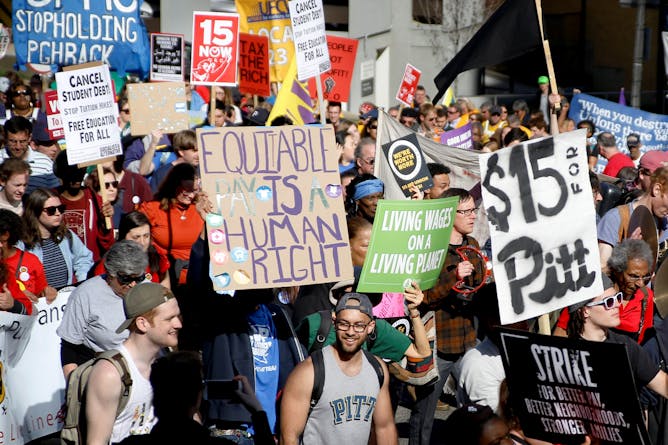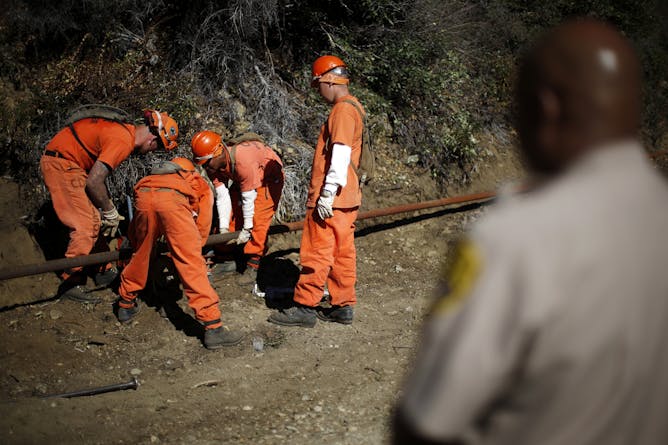|
With union membership hovering at about 11 percent of the national workforce, Labor Day might seem to be more of a celebration of grilling than collective bargaining. But, research by Thomas Kochan – a professor of work and employment relations – and his colleagues suggest that nearly half U.S. of workers would join a union if they could.
You know who can’t join unions? Prisoners. According to Arizona State University historian Calvin Schermerhorn, people imprisoned in the U.S. often produce our food, fight wildfires and make our sugar, all for a few cents per hour. The number of industries that use incarcerated Americans for labor may surprise you.
Labor Day is often regarded as a day off. But a psychologist, an anthropologist and an historian who teach at an engineering college believe it is an ideal time for college educators to reflect on ways to inspire students from different disciplines to collaborate to tackle some of the world’s most complex challenges.
|

Fighting for a $15 an hour wage in Pittsburgh.
AP Photo/Keith Srakocic
Thomas Kochan, MIT Sloan School of Management; Duanyi Yang, Massachusetts Institute of Technology; Erin L. Kelly, MIT Sloan School of Management; Will Kimball, MIT Sloan School of Management
Americans want more say about their benefits, training and other important issues at work.
|

Prison jobs are always low paid, often difficult, and produce many of the foodstuffs and services many Americans use every day.
Reuters/Lucy Nicholson
Calvin Schermerhorn, Arizona State University
Enslaved workers used to grow cotton and mill flour. Now prisoners grind beef and crate eggs. Here, a historian explores Americans' troubling habit of consuming the products of slave labor.
|

Collaboration across disciplines is key to solving the world’s toughest problems, researchers argue.
Monkey Business Images/Shutterstock
Jonathan M Adler, Olin College of Engineering; Caitrin Lynch, Olin College of Engineering; Robert Martello, Olin College of Engineering
Labor Day is an excellent time for college instructors to commit to teaching students to take an interdisciplinary approach to solving the world's toughest problems, three professors argue.
|
Future of work
|
-
Anthony Hussenot, Université Nice Sophia Antipolis
Freelancing is hardly the glamorous, coffee-fueled industry shown on TV. In OECD countries, most gig workers are in the service sector.
-
Thorsten Wuest, West Virginia University; David Romero, Instituto Tecnológico y de Estudios Superiores de Monterrey; Johan Stahre, Chalmers University of Technology
People will still be needed on factory floors, even as robots become more common. Future operators will have technical support and be super-strong, super-smart and constantly connected.
-
Nikolaus Correll, University of Colorado
Today, the U.S. is leading the robotics revolution. But without timely investment, China will overtake us, and could permanently put Americans out of work.
|
|